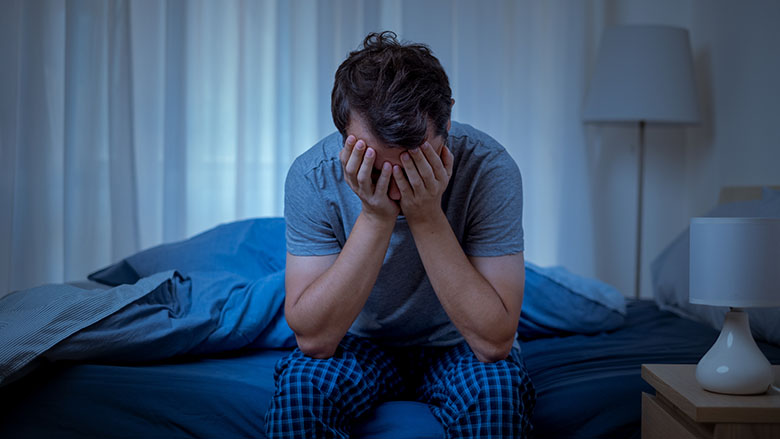Nighttime Urination | Link Between Nocturia & Sleep Apnea

Why Do You Wake Up to Pee? The Link Between Nocturia and Sleep Apnea
Waking up multiple times during the night to urinate can be frustrating and disruptive to your sleep. This condition, known as nocturia, is often more than just an inconvenience—it can be a sign of underlying health issues. One such condition that may be linked to frequent nighttime urination is sleep apnea. Understanding the connection between nocturia and sleep apnea is crucial for managing your health effectively. This blog will explore why you might wake up to pee and how sleep apnea might play a role, while also offering insights into effective treatments and resources available in Punjab.
What is Nocturia?
Nocturia refers to the frequent need to urinate during the night, which disrupts your sleep. This condition can lead to fragmented sleep, leaving you feeling tired and unrefreshed. There are several possible causes of nocturia, including excessive fluid intake before bedtime, bladder infections, and certain medications. However, one lesser-known cause that is gaining attention is sleep apnea.
The Link Between Nocturia and Sleep Apnea
Sleep apnea is a serious sleep disorder where your breathing is interrupted during sleep. The most common type, obstructive sleep apnea (OSA), occurs when the muscles at the back of your throat relax excessively, blocking the airway and causing breathing pauses.
One of the reasons for sleep apnea is that the lack of proper airflow can lead to increased production of urine. When you experience sleep apnea, your body is often subjected to multiple brief awakenings throughout the night, which can stimulate the bladder and increase the need to urinate. Additionally, the stress on your body caused by frequent breathing interruptions can lead to the release of hormones that affect fluid balance and increase urine production.
Symptoms and Diagnosis
The primary symptoms of sleep apnea include loud snoring, choking or gasping during sleep, excessive daytime sleepiness, and difficulty concentrating. If you are experiencing frequent urination at night along with these symptoms, it is important to consult a healthcare professional for a thorough evaluation.
To diagnose sleep apnea, your doctor might recommend a sleep study, also known as polysomnography. This test monitors various physiological parameters during sleep, including brain activity, eye movement, and airflow.
Managing Nocturia and Sleep Apnea
If sleep apnea is contributing to your nocturia, addressing the sleep disorder can help alleviate the frequent nighttime urination. Here are some management strategies:
- Continuous Positive Airway Pressure (CPAP): The most common treatment for sleep apnea involves using a CPAP machine. This device keeps your airway open by delivering a continuous flow of air through a mask you wear while sleeping.
- Lifestyle Changes: Adopting a healthier lifestyle can also improve sleep apnea symptoms. Losing weight, avoiding alcohol, and quitting smoking can help reduce the severity of sleep apnea.
- Medications for Overactive Bladder: In some cases, medications may be prescribed to manage an overactive bladder, which can help reduce the frequency of nighttime urination. These medications work by relaxing the bladder muscles and reducing the urge to urinate.
- Bladder Training: Bladder training techniques, such as scheduling bathroom visits and gradually extending the time between urinations, can also be beneficial in managing nocturia.
Finding the right specialist is crucial for effective treatment. Renowned urologists at Gomti Thapar Hospital provide expert care for patients dealing with nocturia and other urological concerns. Their expertise ensures that you receive personalized treatment plans tailored to your needs.
Conclusion
Waking up frequently to urinate during the night can be more than just an annoyance; it can be a sign of an underlying condition such as sleep apnea. Understanding the link between nocturia and sleep apnea is crucial for addressing both issues effectively. By seeking proper diagnosis and treatment, including using a CPAP machine, making lifestyle changes, and considering medications for overactive bladder, you can manage your symptoms and improve your quality of life.
For those in Punjab, Gomti Thapar Hospital offers exceptional urological care, and consulting with the best urologist in Punjab can provide you with the guidance needed to manage your condition effectively. If you suspect you might have sleep apnea or are struggling with frequent nighttime urination, don’t hesitate to reach out to a healthcare provider for a comprehensive evaluation and personalized treatment plan.

